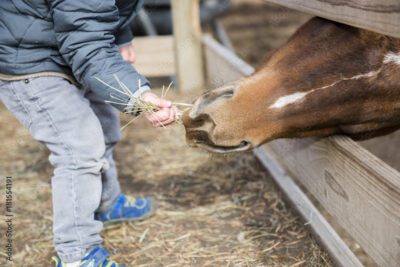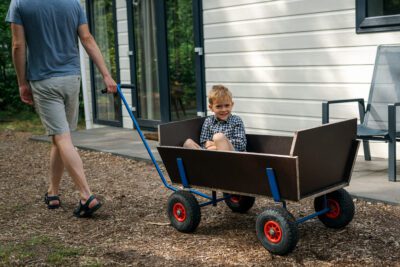By Christine Denise
Autism Mom and Contributing Writer for As You Are, a virtual clinic dramatically increasing access to early autism diagnostic services through the use of exclusively telehealth appointments
I’ve Been in Your Shoes
My first clue that she had a special needs child was when she told me she would only meet with me when her son was at school.
Then, as soon as I walked in her living room, I knew her son was like mine.
She didn’t have any furniture in her dining room. Barely any furniture other than a couch and TV in her living room. Her kitchen table and chairs had lots of knicks in them – one more than the others.
She apologized for the lack of furniture and lied about how she had just moved in.
“That’s where your son must sit,” I said as I looked at her table.
“Yep,” she shyly replied.
“My son’s spot at our table looks just like that,” I said.
She stared at me for a moment, and I could read her thoughts, “That’s nice of you to try to empathize with me, but you have no idea what this is like.”
“My son is nonverbal autistic,” I said. “And he’s 8.
He loves banging anything and everything he can on our table just to hear the noise.”
She looked at me in astonishment.
“So is mine, but he’s six,” she said.
Being Vulnerable is Therapeutic
From there, the conversation we were there to originally have went by the wayside, and we talked for a good 20 minutes comparing notes on the unusual habits our unusual children have and how we have learned to cope with them.
When we’re not having company, about a five-foot section of the wall in my dining room has a row of empty Command strips. It’s where pictures usually hang, but for some reason, Louie loves to rip them off. He keeps the picture of us at Disney World four years ago close to him.
All of the chairs and benches around our dining room table are piled on top of it so he doesn’t climb it and try to swing from our light fixture. We’ve already lost one of them to what we call his Curious George tendencies.
Some of our furniture we keep in the basement and only bring it out when we have people over. Louie also loves to slam our marble top coffee tables on our hardwood floors just to hear the sound, so those stay out-of-sight for the most part.
And forget about the brass candle holders I tried to put on our buffet. Those make a delightful ringing sound when they hit the marble table top they sit on.
She looked so relieved to hear me share our experiences and confessed most of her furniture is in storage because her son just uses it to climb and jump off. And for me, it was yet another example of how I’m not alone.
Paying it Forward Every Chance I Get
As we continued to compare notes, it became apparent to me that even though her son was 6, she was relatively new to learning how to raise a child with autism. I decided it was a good moment to share what I’ve learned since my son received a diagnosis. After all, part of the reason I know so much is because others have shared their ups and downs with me. I’ve learned from other moms who were once in my shoes. Now it’s my turn to help those who have a newly diagnosed child.
Here are a few of the basics we talked about that day:
- Early intervention is key. Every state has an early intervention program in which children with special needs can access services for free. But the waiting lists can be long, so calling your state’s providers as soon as a diagnosis is made is key. The CDC has a great website listing the contact information for every program. In Missouri, where we live, a program called First Steps gave us a physical, occupational and speech therapist that came to our home for private one-hour sessions until our son was 3 years old and could start school.
- Find your people. The day I met the mom I’m talking about in this blog, I felt badly about leaving her. Her eyes came alive and her body language changed so much from a feeling of anxiousness about the appearance of her apartment to holding her head higher once she felt she could be truthful with me and I truly understood. I felt the same way after finding a Facebook group of fellow moms who exist solely in a Messenger chat. We’ve never met each other, but several women in the group have invited others in along the way. I told the woman I met how important it is for her to find other moms, and she told me she didn’t have time to. I told her neither did I, and that I don’t have a single friend with a special needs child that I see regularly or talk to on a regular basis. Even though there are wonderful support groups out there, I don’t feel like I have the time to be part of them. I admire those who do. I have that Messenger group chat, and what a game changer that has been for my mental health. There are also plenty of Facebook groups out there that you never have to join or post to be a part of. Sometimes just reading the experiences of others is all that it takes. Make time to find your people, whether just to eavesdrop on their social media posts or with more direct contact like a group meeting.
- Change the environment, not the child. The mom I met that day already had a pretty good handle on this one. By removing most of her furniture, she was making it safer for her son instead of trying to suppress his sensory seeking behavior and growing frustrated that he would not respond to punishment or correction in any meaningful way. Your house may not look like you envisioned it to be, but it is a lot easier to change the environment to better suit the sensory needs of a child with special needs than it is to expect them to treat a home like a typical child might. At the same time, allow your child to practice their sensory-seeking behaviors if they’re safe because it is their way of coping with whatever is going on around them. Instead of the candle holders that make a ringing sound when our son throws them on our marble buffet, I looked for toys that make sounds if he pushes a button and doesn’t throw them. Even though the mom I met that day removed most of her furniture, and that left her son without an outlet for his need to jump and climb, it kept him safe. She said there is not a trampoline park or fenced in park they haven’t gone to in town.
- Do what works. This might be a controversial motto, but nonetheless, it is one I think is important. Everyone has differing opinions on how to handle all of the different situations that will come up in this life with a child with special needs. It’s really true of any situation in general. I say, do what works for you and your family regardless of what the experts or other families recommend. One of our biggest challenges at the moment is teaching our son to use utensils. He prefers to eat with his hands and experience his food that way. It’s messy. The floor around his chair is never clean, and the laundry is never ending. And he can use a utensil, he just prefers not to. So, even though his therapists tell us to be vigilant and to not give him an option to eat without utensils, sometimes it just works because the rest of our family is starving and no one can be one-on-one with him. Or we’re on the go in the car, and it’s easier to hand him his food rather than wait until we get home. Do what works, and feel good about it.
Do you have questions about your child’s development? The team at As You Are provides useful autism screening and diagnostic evaluations for kids 16 months to 10 years old via telehealth appointments.
Disclaimer: I am not a medical professional. This is a sponsored blog post, but all opinions are my own.


















